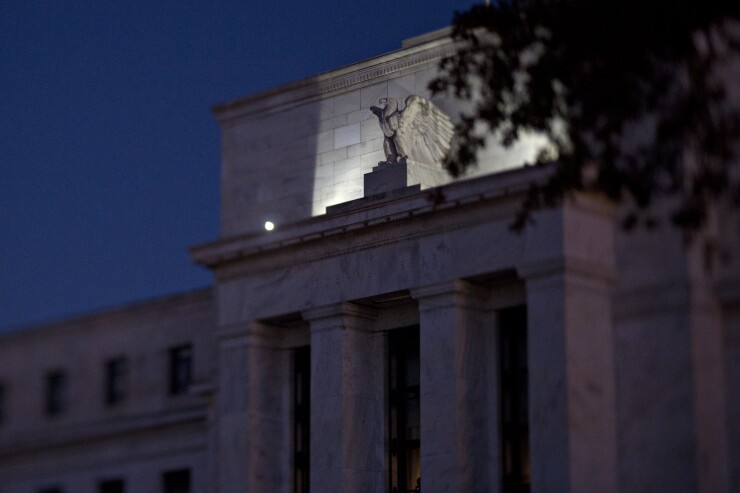It’s July, but it’s not too early to discuss selling muni-bond closed-end funds to offset a capital gains tax liability, according to Greg Neer of Relative Value Partners.
Almost 90% of closed-end funds monitored by Bloomberg posted a loss this year as rising interest rates increased the cost of leverage that the funds use to buy longer-dated debt, putting pressure on dividends. In addition, yields on 30-year muni bonds rose 0.4 percentage point in the first quarter, reducing the value of the debt held by the funds.
More than a third of muni closed-end funds posting losses this year have declined more than 5% and four funds have lost more than 10%, according to data compiled by Bloomberg. If the losses hold, investors could sell closed-end fund shares, Neer said.

“If things stay as is or as people expect, you’ll likely get a significant amount of sellers come early fall and winter," Neer said. “They may not be able to accept the volatility of what they thought was a more stable asset, or they’re going to say, let’s swap, let me take my loss on Fund A and buy Fund B and realize that loss."
Muni closed-end funds rebounded in the second quarter, getting a boost from a Treasury rally spurred by political unrest in Italy that had global investors fleeing to relatively safer assets.
Many closed-end funds borrow short-term and buy higher-yielding, long-dated debt. Short-term borrowing costs in the muni market have almost doubled to 1.51% in a year, and the Fed is expected to raise short-term interest rates two more times this year.
-
Non-U.S. purchases of municipal bonds are up 32% from 2014. But not everyone is impressed.
April 21 -
Market valuations are generally high this year partly due to a lack of rate increases, but fourth-quarter positioning can still present opportunities.
September 27 -
Will the rally continue, or are the winning ways of this asset class nearing an end?
September 9
Rising leverage costs narrow the profit that can be made by investing in long-dated debt, eating into distributions to investors. BlackRock said recently it was cutting dividends on 20 of its muni closed-end funds.
“Leverage costs seem like they’re only going one way: up. The curve keeps flattening, dividends will continue to get pressured," Neer said.
Tax-loss selling could cause discounts on muni-closed end funds — the difference between a closed-end fund’s share price and the underlying value of its assets — to widen further, Neer said. Discounts typically widen in the fourth quarter and rebound in the first quarter, he said.
A majority of affluent Americans are likely to adjust their financial plans under the new law, according to the AICPA. Here's how advisors can help.
National leveraged muni closed-end funds traded at an average discount of 6% as of June 13, compared to their 52-week average discount of 3%, according to UBS Global Wealth Management.
However, in the near-term muni closed-end funds could benefit from stronger seasonal demand for tax-exempt debt. The volume of new muni bond sales in July will be far less than the amount of money investors will receive from interest payment on maturing securities, according to Citigroup.






